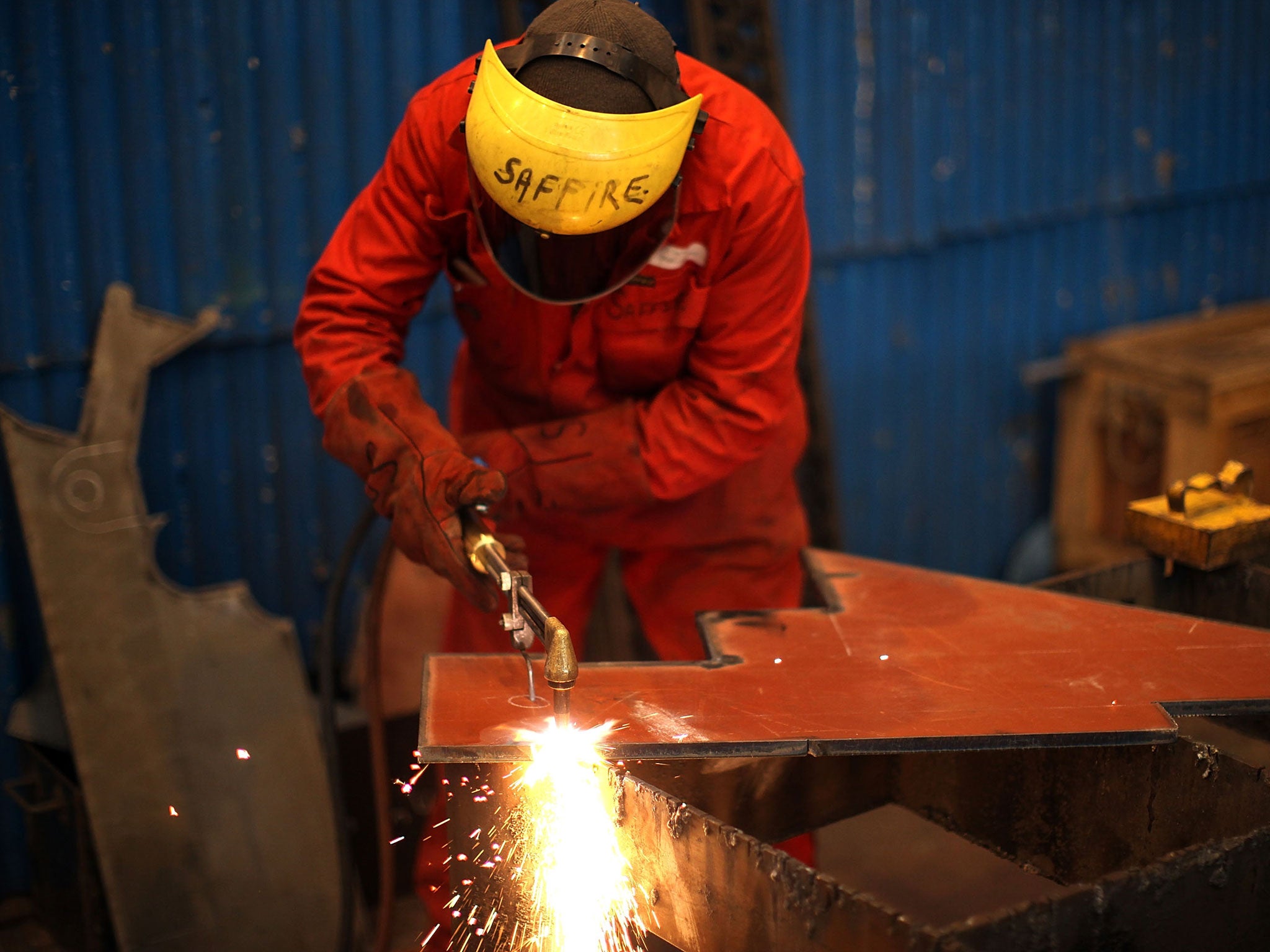Your support helps us to tell the story
From reproductive rights to climate change to Big Tech, The Independent is on the ground when the story is developing. Whether it's investigating the financials of Elon Musk's pro-Trump PAC or producing our latest documentary, 'The A Word', which shines a light on the American women fighting for reproductive rights, we know how important it is to parse out the facts from the messaging.
At such a critical moment in US history, we need reporters on the ground. Your donation allows us to keep sending journalists to speak to both sides of the story.
The Independent is trusted by Americans across the entire political spectrum. And unlike many other quality news outlets, we choose not to lock Americans out of our reporting and analysis with paywalls. We believe quality journalism should be available to everyone, paid for by those who can afford it.
Your support makes all the difference.Manufacturing surged at its fastest pace in seven months in June, bolstering hopes another quarter of strong GDP growth and stoking expectations of a pre-Christmas interest rate hike from the Bank of England.
The Markit/Cips survey snapshot of manufacturing activity shot to 57.5 in June, up from 57 in May and well above the 50 mark that separates growth from contraction. The reading, which was the strongest since November, surprised economists who had anticipated a slight fall in the index.
Immediately after the release of the results, sterling jumped to $1.7136, its highest level since October 2008, as traders bet on a sooner base rate hike from the Bank of England. Against the euro, the pound rose by almost a third of a cent to €1.2513.
Rob Dobson of Markit said that the manufacturing survey rounded off “one of the best quarters for the sector over the past two decades”. The rate of output growth actually eased slightly, but manufacturers reported growth in new work from Europe, Asia and the Middle East. The rate of increase in new export orders hit a five-month high.
“We’ve seen a big focus on new product and service innovation across industry over recent years and this survey provides a bit more evidence that this paying off with companies securing new business off the back of it” said Lee Hopley of EEF, the manufacturers’ organisation.
Employment by manufacturers also rose strongly with small and medium size firms especially stepping up hiring. Output prices increased for the first time since January.
However, the Office for National Statistics also confirmed today that productivity declined by 0.1 per cent in the first quarter of 2014, leaving output per hour 4.3 per centage points below its level six years ago.
In the service sector, output per hour increased by just 0.2 per cent quarter on quarter, although in manufacturing, the performance was better with 1.5 per cent growth.
According to the Office for National Statistics, manufacturing output grew by 1.5 per cent in the first quarter of the year and economists expect it to grow by a similar amount in the second quarter. However, the level of manufacturing output remains 7.5 per cent below its peak in the first quarter of 2008.
“As this news flow is absorbed further, expectations for the first rate hike in Q4 this year should harden” David Tinsley of BNP Paribas said.
The ONS confirmed last week that GDP grew 0.8 per cent in the first quarter. The Bank of England and other forecasters had initially expected growth to moderate in the second half of the year.
However, economists are now increasingly starting to argue that the expansion will accelerate. “Growth may have picked up pace in Q2” said Martin Beck. “We expect a quarterly expansion of around 1 per cent, which would be the highest rate since 2007.”
Tata Steel Port Talbot: 400 jobs at risk
Tata has announced that 400 jobs will be axed at its steel-making plant in Port Talbot. The company’s European chief executive Karl Koehler said the move was influenced by the UK’s high businesses rates and uncompetitive energy costs. The jobs will go at Tata’s strip products business, which makes sheets of steel for tin cans, cars, roofing and fridges. The Welsh government welcomed the fact that the company plans to make the redundancies voluntary. A 45 day consultation process will now begin. Tata has 7,000 staff working at Port Talbot. It axed some 600 jobs in November 2012.

Join our commenting forum
Join thought-provoking conversations, follow other Independent readers and see their replies
Comments